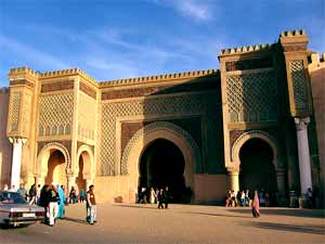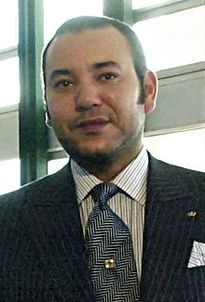Impacts of Imperialism

French and Spanish imperialism still affects Morocco today. The French culture has left a strong impact on the culture of the Moroccans. One aspect of the French culture that shows the affect of imperialism is the French language. After the French took over Morocco, the French language has become widely spoken. French is usually spoken in government and business. Even though the French language is not one native to Morocco, about half of the Moroccan population have the ability to speak in French. The Spanish language is also a part of the Moroccan culture that shows the influence of imperialism. Spanish is spoken by many people in northern Morocco, which was where the Spanish Protectorate had control. About 20,000 Moroccans know Spanish (Languages of Morocco - French to Arabic to English, Morocco.com; Morocco, CIA). Other ways that the French Protectorate still has an impact today is through the many railways, roads, and trading posts built in Morocco. Today, Morocco has one of the most developed systems of infrastructure in Africa because of the French (Infrastructure and Transport, Embassyofmorocco.com; Moroccan Soul: French Education, Colonial Ethnology, and Muslim Resistance, 1912-1956, Google Books). Furthermore, improvements made by the French helped improve Morocco's economy. Morocco's economy is in charge of providing a big percentage of the world's phosphate production as well as exporting other natural resources to some countries. Morocco is the largest exporter of phosphate and the third largest producer of the resource (MOROCCO, Worldatlas.com). The school system was another part of Morocco that was influenced by the French and Spanish. During the imperializing of Morocco, new schools were made that were different from the traditional Moroccan schools. These schools were more secular and less focused on religion (Moroccan Soul: French Education, Colonial Ethnology, and Muslim Resistance, 1912-1956, Google Books). Furthermore, the Spanish and French built new cities and towns in Morocco. Louis Lyautey helped create two cities on the coast, Kenitra (renamed Port Lyautey) and Casablanca. In Moroccan towns and cities, French architecture influenced the buildings (The French and Spanish in Morocco, Fsmitha.com; Languages of Morocco - French to Arabic to English, Morocco.com). Moreover, French influence can be seen in Moroccan law and government. The rules and laws of Morocco originate from the laws of France. The laws of Morocco were influenced by the French government. Moroccan laws are written based off of French laws and laws that apply to the Islamic religion (Morocco, CIA). All in all, French and Spanish colonization has left a very big impact on Morocco.


